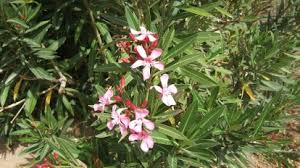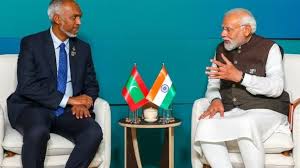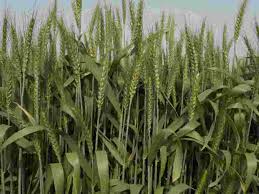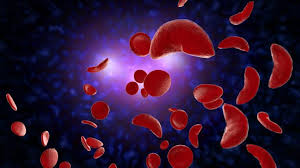Today’s Current Affairs: 11th May 2024 for UPSC IAS exams, State PSC exams, SSC CGL, State SSC, RRB, Railways, Banking Exam & IBPS, etc
Table of Contents
Tamil Nadu Bans Dog Breeds:

The Tamil Nadu Animal Husbandry Department recently declared a prohibition on 23 dog breeds deemed ‘ferocious’, including well-known types like the Rottweiler, Pitbull Terrier and Tosa Inu.
- This decision was largely motivated by a distressing incident in Chennai where a Rottweiler severely injured a child.
- The catalyst for this regulatory action was an event at a park in the Thousand Lights area of Chennai, where a five-year-old girl was attacked by two Rottweiler dogs.
- The girl, the daughter of a security guard, was playing when the dogs pounced on her, causing serious injuries.
- The incident resulted in the arrest of three individuals, including the owner of the dogs, following a complaint about the owner’s negligence.
- Earlier in March, a directive from the central government was sent to all state chief secretaries, urging them to halt the import and sale of 23 types of ferocious dogs.
- This national call highlighted the need for stringent controls on breeds perceived as dangerous and stressed the importance of proper handling, including the use of leashes and securing necessary licenses from local authorities.
Oleander Leaves : Banned

Death of a 24-year-old woman, Surya Surendran, who accidentally consumed oleander leaves, two major religious temple boards in Kerala have imposed a ban on the use of oleander flowers in temple offerings.
- The incident occurred when the victim, unknowingly chewed oleander locally known as Arali in Kerala leaves, leading to severe poisoning and her subsequent death.
- This prompt action by the Travancore Devaswom Board and the Malabar Devaswom Board aims to prevent future incidents by restricting the flower’s use in religious offerings and prasad.
- Nerium oleander, commonly known as oleander, is a highly toxic plant despite its widespread cultivation for ornamental purposes.
Gaming Visa : Dubai

Dubai has launched an innovative Gaming Visa, spearheaded by Crown Prince Hamdan bin Mohammed bin Rashid Al Maktoum, aiming to transform the city into a global gaming hub by attracting 30,000 game developers by 2033.
- The Gaming Visa is designed for game developers, designers, programmers, and content creators.
- Applicants must be at least 25 years old and provide documents including identity proof, a resume, and evidence of relevant work experience.
- Potential applicants must submit their documents for review through Dubai’s official visa processing platforms.
- The processing time can vary, but it is typically streamlined to attract top talent without undue delay.
India Military Withdrawal From Maldives:

India has completed the withdrawal of its military personnel from the Maldives, an action that fulfils one of President Mohamed Muizzu’s major campaign promises.
- This event marks a notable shift in Indo-Maldivian relations, especially considering his perceived pro-China stance.
- The final batch of troops left the Maldives a day before the deadline of May 10, 2024.
- The request for the withdrawal of Indian military forces came after relationships between India and the Maldives became tense.
- President Muizzu insisted on the removal of Indian personnel who managed and operated three significant military platforms gifted by India two helicopters and a Dornier aircraft.
Extreme Solar Storm Hits Earth:

On May 11, 2024, Earth experienced its most significant solar storm in over two decades.
- The storm, triggered by multiple coronal mass ejections (CMEs) from the sun, stirred a global buzz due to its potent impact on communication networks, satellite functions, and power grids.
- It was also visible in the form of dazzling auroras spanning from Tasmania to Britain.
- Coronal Mass Ejections (CMEs) are massive bursts of solar wind and magnetic fields rising above the solar corona or being released into space.
- These ejections are significant because they carry billions of tons of plasma, which is entwined with magnetic fields.
Non-Market Economy Status:

Vietnam has been pushing the President United States of America to quickly change its “non-market economy” classification to “market economy” status.
- The United States of America designates a country as non-market economy based on several factors namely
- If the country’s currency is convertible;
- If wage rates are determined by free bargaining between labour and management;
- If joint ventures or other foreign investment are allowed; whether the means of production are owned by the state; and
- If the state controls the allocation of resources and price and output decisions.
- The non-market economy label allows the US to impose “anti-dumping” duties on goods imported from designated countries.
Market Economy: It is a system in which production decisions and the prices of goods and services are guided primarily by the interactions of consumers and businesses.
Hindon River : Report On Pollution

The National Green Tribunal (NGT) recently asked the Uttar Pradesh Pollution Control Board (UPPCB) to submit an additional report on pollution of the Hindon River.
- Hindon River is a tributary of the Yamuna River and is primarily a rain-fed river.
- It originates from the lower Shivalik ranges in Saharanpur District of Uttar Pradesh.
- It flows across the industrial belt of Western Uttar Pradesh for 400 kilometres before discharging into the Yamuna River in Noida.
- The Kali (West) River and Krishni River are the main tributaries of River Hindon.
- Due to urban, agricultural, and industrial waste which is being released without sufficient treatment into its waters, the Hindon is now one of the most polluted stretches in the Ganga basin.
- In 2015, the Central Pollution Control Board (CPCB) found the Hindon’s pollution levels were so severe that it was declared a ‘dead river’ and ‘unfit’ even for bathing in several sections of the river.
National Green Tribunal (NGT):
- It has been established under the National Green Tribunal Act 2010.
- Effective and expeditious disposal of cases relating to environmental protection and conservation of forests and other natural resources.
- It is mandated to make disposal of applications or appeals finally within 6 months of the filing of the same.
Indian Agricultural Research Institute : New High-Yielding Wheat Seed Variety, HD 3386

The Indian Agricultural Research Institute (IARI) recently introduced a new high-yielding wheat seed variety, HD 3386.
- Indian Agricultural Research Institute (IARI) is India’s largest and foremost Institute in the field of research andhigher education, and training in agricultural science.
- It is situated in Delhi and is administered by the Indian Council of Agricultural Research (ICAR).
- IARI, popularly known as Pusa Institute, began in 1905 at Pusa (Bihar) with the generous grant of 30,000 pounds from an American philanthropist, Henry Phipps.
- The institute was then known as the Agricultural Research Institute (ARI), which functioned with five departments, namely Agriculture, Cattle Breeding, Chemistry, Economic Botany and Mycology. Bacteriology unit was added in 1907.
- The name of ARI was changed to Imperial Institute of Agricultural Research in 1911, and in 1919 it was renamed Imperial Agricultural Research Institute.
- Following a devastating earthquake on 15th January, 1934, the institute was shifted to Delhi on 29th July 1936.
- Post independence, the institute has been renamed IARI.
Patronage Appointments And Ethics:

Patronage appointments in the public sector raise several ethical issues that can affect the efficiency and accountability of the civil service.
- Patronage Appointments refers to the appointments that are made based on the recommendation or source (personal connections) of an influential person, political leader, public servant, etc.
- This has not only affected the people involved by has affected the overall Governance of India.
- When appointees get their position through patronage, then they are likely to be more accountable to that person rather than to the system.
- Ideally, positions should be awarded based on individuals’ abilities and qualifications. Bypassing meritocracy indirectly compromises the integrity of the system and can result in ineffective or incompetent individuals occupying important roles.
- In the light of appointments through patronage, qualified and capable individuals may feel their efforts and qualifications are not given equal consideration.
- It erodes public trust in the fairness and impartiality of the system and people in power.
- It leads to a loss of confidence in the administration as a whole.
- The associated nepotism/favouritism further erodes the trust of the individual in the system.
Women Empowerment : Making India Viksit By 2047

A new government will soon be taking up the challenge of making India viksit by 2047.
- With women lagging behind on several parameters of well-being in the country today, empowering them economically lies at the heart of the challenge we face in transforming India into a developed country.
- As history has shown, women are empowered when they step out of their homes and enter market work only when their education levels rise and “good” jobs appear.
- Improving the value of investments in women’s human capital, and at a low cost, is our best bet for engendering gender parity and creating a “developed” society.”
- India’s overall employment rate has historically been around 50 per cent of the working-age population much lower than in China (almost 70 per cent) or even our neighbour, Bangladesh (about 55 per cent), according to ILO and World Bank estimates.
- Bringing more working-age population into the productive workforce is critical to achieving a high GDP growth rate.
- Amongst the main reasons for the significantly lower labour force participation (LFP) rate in India, is women’s low LFP (currently around 25 per cent).
- According to World Bank estimates, Increasing women’s LFP to 50 per cent of labour force will bring India closer to 8 per cent GDP growth rates and a five-trillion dollar economy by 2030.
Sperm Whale : Study

Scientists have uncovered a fascinating aspect of sperm whale communication: their complex vocalizations resemble Morse code, hinting at a sophisticated “phonetic alphabet.”
- These whales, renowned for their social nature, use clicking sounds called codas to convey messages.
- Research on sperm whales in the eastern Caribbean revealed a rich communication system akin to human language.
- Sperm whales are the largest toothed whales, predominantly observed in polar regions.
- They inhabit deep open waters and coastal areas, facing threats such as vessel strikes and entanglement in fishing gear.
- Listed as Vulnerable by the IUCN and under Schedule II of the Wildlife (Protection) Act, 1972 in India, they require conservation efforts to safeguard their populations.
U.N. Counter-Terrorism Trust Fund:

India has contributed $500,000 to the U.N. Counter-Terrorism Trust Fund, reaffirming its commitment to global efforts against terrorism.
- This contribution supports UNOCT’s global programmes, mainly focusing on Countering Financing of Terrorism (CFT) and Countering Terrorist Travel Programme (CTTP).
- CFT strengthens member states capacity to understand terrorism risks, while CTTP assists in detecting and countering terrorists.
- India’s efforts include the Financial Intelligence Unit – India and the National Investigation Agency.
- UNOCT established in 2017, the United Nations Office of Counter-Terrorism (UNOCT) oversees the UN Counter-Terrorism Trust Fund, which was initially established in 2009 and later transferred to UNOCT.
- The UN Counter Terrorism Centre (UNCCT) serves as its primary capacity-building arm, aiming to enhance the visibility, advocacy, and resource mobilization for UN counter-terrorism efforts.
- Its functions also include strengthening the delivery of UN counter-terrorism capacity-building assistance to Member States.
Kalesar Wildlife Sanctuary : In News

The Supreme Court stayed the construction of four proposed dams inside Kalesar Wildlife Sanctuary in Haryana’s Yamunanagar district as the construction will not only negatively impact the wildlife and local community but also harm the ecosystem.
- It was established in 1988 to protect the local wildlife and biodiversity and was declared a National Park on 8th December 2003.
- It is situated in the foothills of the Shiwalik ranges of the Himalayas and is contiguous to Rajaji National Park (Uttarakhand) and Simbalbara National Park (Himachal Pradesh).
- It is spread across 13,209 acres and is rich in biodiversity, featuring dense sal and khair forests and grassland patches supporting diverse plant and animal life.
- It is home to many species of animals, including leopards, sambar deer, barking deer, hyenas, jackals, Indian porcupines, Indian pangolins, and langurs and several species of birds, such as the red junglefowl, grey partridge, Indian peafowl, and white-throated kingfisher
Sickle Cell Disease : Study

A 12-year-old boy from USA, became the first person in the world with sickle cell disease to begin a commercially approved gene therapy that may cure the condition.
- Sickle Cell Disease (SCD) is an inherited blood disorder. It is marked by flawed hemoglobin.
- Hemoglobinis the molecule in red blood cells (RBCs) that carries oxygen to the tissues of the body.
- People with SCD have atypical hemoglobin molecules called hemoglobin S, which can distort RBCs into a sickle, or crescent, shape. SCD interferes with the delivery of oxygen to the tissues.
- Normally, RBCs are disc-shaped and flexible enough to move easily through the blood vessels.
- In SCD, RBCs become crescent- or “sickle”-shaped due to a genetic mutation.
- These sickled RBCs do not bend or move easily and can block blood flow to the rest of the body.
- The cause of SCD is a defective gene, called a sickle cell gene.
- A person will be born with SCD only if two genes are inherited—one from the mother and one from the father.
- Early stage: Extreme tiredness or fussiness from anemia, painfully swollen hands and feet, and jaundice.
- Later stage: Severe pain, anemia, organ damage, and infections.




